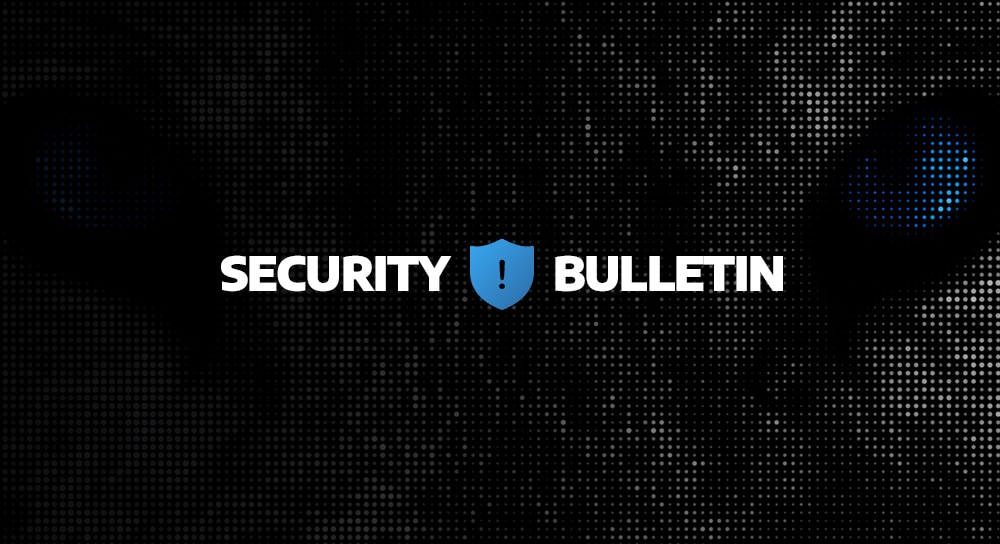Where there is money, there are cybercriminals trying to take it. This is especially true for credit unions, which deal with both financial information and the personal identifying information (PII) of every member and connected institution. They are a digital vault of data and dollars and threat actors are all too ready to crack the safe.
According to the IBM Cost of a Data Breach Report 2023, financial services firms are 300 times more likely to be targeted by a cyber attack, with an average breach cost of $5.9 million USD. PII was the costliest and most-common data exfiltrated in breaches. IBM also stated, in their 2024 X-Force Threat Intelligence Index, that financial organizations made up 18.2% of breaches.
According to Arctic Wolf® Incident Response data, the average ransom for financial institutions was $900,000 USD, an amount which can cause major damage to these smaller organizations’ budgets.
Given these organizations’ valuable data, their reputation among the communities they serve, and their compliance requirements, it’s no surprise that they face unique challenges and threats that require a holistic, operations-focused approach.
What’s at Stake If a Credit Union Is Breached?
The costs of a data breach extend far beyond a dollar amount. For credit unions the consequences of a cyber attack include:
- Data loss and data exfiltration
- Fraudulent spending
- Replacing debit cards and remediating member’s accounts
- Lost revenue that comes from downtime
- Reputation damage and lost members (67% of consumers notified of fraud changed their credit union or bank)
Those costs add up quickly, and for a small credit union, they can be devastating.
According to one credit union that works with Arctic Wolf, a data breach can result in a major loss of business.
“We have competitors, and there’s a competitor around us that’s a little larger that could easily take out our memberships,” the credit union’s information security officer (ISO) said. “Big companies get hit with data breaches, but it’s not going to hurt their bottom line. It’s different for us.”
Understanding the cyber risks credit unions face, and how to reduce them, can be the difference between a stopped incident or a full-scale data breach.
Six Cybersecurity Challenges Credit Unions Face
1. Insufficient and Outdated Technology
Because they are smaller, more local, and operate with a smaller staff, credit unions are often operating on outdated technology, and may lack email security or utilize out-of-date software systems. This means software with unpatched vulnerabilities, cybersecurity gaps, and more.
2. A Strained Workforce
Like many organizations, the cybersecurity teams at credit unions are overworked and under- resourced. It’s known that the cybersecurity skills gap is only growing, and that will affect smaller organizations like credit unions differently than large corporations. In fact, 47% of executives at financial institutions said security operations are more difficult today than they were just two years ago.
3. Incident Response and Regulatory Reporting
Credit unions are subject to regulations and compliance requirements, which can be difficult to maintain and make responding to cyber incidents more complicated.
According to the National Credit Union Administration (NCUA), “all federally insured credit unions must notify the NCUA as soon as possible, and no later than 72 hours, after the credit union reasonably believes it has experienced a reportable cyber incident or received a notification from a third party regarding a reportable cyber incident.”
Given credit unions’ resource and staff constraints, they need external help maintaining new regulatory updates like the NCUA reporting rule, as well responding to incidents in a way that not only decreases operational downtime but identifies and repairs the root cause to prevent future issues.
4. Managing Cyber Insurance Requirements
Cyber insurance is quickly becoming a must-have for organizations, and for smaller businesses like credit unions, a policy can be a valuable way to transfer risk. However, premiums continue to increase along with the needed requirements that now expand far beyond basic security controls to more comprehensive measures such as access management, incident response, security awareness training, and more.
According to a recent report by Arctic Wolf and Cyber Risk Alliance, the group of organizations who had yet to obtain coverage faced challenges such as competing internal priorities (34%) and lack of sufficient coverage (30%).
5. The Continued Risk of Ransomware
Ransomware attacks have plagued credit unions over the years, and they’ve only ramped up recently. In December 2023, a known vulnerability led to ransomware attacks on more than 60 credit unions. Credit unions are targeted by threat actors with this kind of attack due to the vast reputation and financial damage that can occur if they don’t immediately pay ransom, which has manifested in ransomware groups asking for a median ransom of $900,000 USD for financial and insurance organizations in 2023.
6. Supply Chain Risks
An expanded attack surface creates expanded risk, and credit unions don’t operate in a silo. They work with several vendors and often have multiple locations with a vast user base. With threat actors increasingly turning to the supply chain to launch sophisticated attacks that can leverage multiple payouts, this puts credit unions at an increased risk.
How Credit Unions Can Prepare for Future Cyber Threats
Credit unions need to tackle every angle of their cybersecurity gaps. Technology can’t solve the problem alone. From solutions to staff to compliance, a holistic approach is always the best to add both breadth and depth to one’s security posture and create a culture of security throughout your organization.
Best cybersecurity practices for credit unions include:
- Implementing continuous security awareness training that’s customizable to your industry and organization’s unique threats.
- Employing 24×7 monitoring that covers the breadth of your security environment
- Utilizing access controls to further protect valuable PII, financial data, and assets
- Having a robust network security plan, especially if your clients access financial assets remotely
- Maintaining a routine vulnerability management program to reduce risk and protect software from threat actors
- Following all compliance guidelines for stronger security
Learn more about how to improve your organization’s security posture with our financial industry security checklist.
See how security operations can transform your credit union’s approach to cybersecurity.






